3 Ways to Improve Your Training Programs with Cognitive Learning Theory Tools
BizLibrary
FEBRUARY 21, 2024
What is Cognitive Learning Theory? Cognitive learning theory (CLT) is a psychological perspective focused on the way our brains learn best.
This site uses cookies to improve your experience. By viewing our content, you are accepting the use of cookies. To help us insure we adhere to various privacy regulations, please select your country/region of residence. If you do not select a country we will assume you are from the United States. View our privacy policy and terms of use.

BizLibrary
FEBRUARY 21, 2024
What is Cognitive Learning Theory? Cognitive learning theory (CLT) is a psychological perspective focused on the way our brains learn best.

Dashe & Thomson
MARCH 14, 2019
What Are Cognitive Biases? Our brains receive non-stop input from all five senses every moment we are awake. In the face of this enormous amount of daily input, our brains develop subconscious coping mechanisms that we can use to quickly make daily decisions. Cognitive biases result when these coping mechanisms fail.
This site is protected by reCAPTCHA and the Google Privacy Policy and Terms of Service apply.

E-Learning Provocateur
JANUARY 12, 2010
Academia is teeming with learning theories. It can be quite a challenge for the modern learning professional to identify an appropriate learning theory, draw practical ideas from it, and apply it to their daily work. Which theory do you choose? How does it relate to other theories? Where do you start?

Ontuitive
AUGUST 5, 2016
How Edward Tolman's experiments shaped our theories of learning. Edward Tolman's influential experiments with rats in the 1940's remain highly formative for the field of cognitive psychology, and continue to shape our discussions about learning theory.

Advertisement
Cognitive science theories already supply the answers. Learn how OttoLearn packages them into a single platform you can use to deliver microlearning based reinforcement training, and go beyond completions to focus on outcomes. Learner engagement and retention doesn’t have to be a mystery.

Matrix
APRIL 29, 2021
Reading is good for the brain. Continuing our series about adult learning theories series that instructional designers should know before creating training courses, we’ll explore experiential learning today. The Theory of Experiential Learning. Take driving, for example.

Dashe & Thomson
FEBRUARY 4, 2014
After all, it’s best if the learner can focus on the learning event rather than on trying to interpret and decipher the meaning… Continue Reading The post Strain the Brain for Better Results appeared first on Social Learning Blog. Learning Style Theory Cognitive Strain CRT elearning instructional design Learning Theory'

Matrix
APRIL 27, 2021
The theory of transformative learning has been developed by Jack Mezirow. ” moment is both cognitive and emotional. The cognitive system makes use of prior knowledge and experiences all the time. The process of transformative learning. Instead, they search for different perspectives to make sense of change.

LearnUpon
AUGUST 27, 2019
There are lots of learning theories out there, but they are not a one size fits all thing. Your learning & development team should investigate the different theories and decide which ones suit the type of training you need to deliver, and the company culture you’re creating . Behaviorist Learning Theory .

Maestro
JUNE 15, 2023
Others see learning as a road to a better standard of living and seek opportunities to improve their job status or secure professional advancement. Sometimes, adults are learning because they are required to do so for their job. And some learn because they have a cognitive need or curiosity to do so.

KnowledgeOne
JULY 7, 2022
The term “neuroscience” dates back to the 1960s and refers to the scientific study of the nervous system, from molecules to cognitive and behavioural functions. Note that the nervous system includes our fascinating brain. A) It has been confirmed that the brain can evolve and adapt throughout life. CORRECT ANSWER.
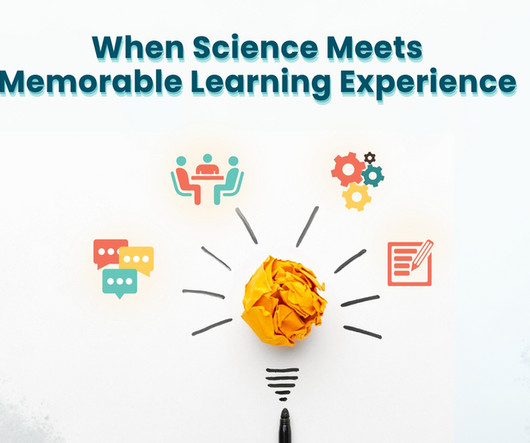
Thinkdom
FEBRUARY 29, 2024
Learning is a complex process influenced by a variety of cognitive, emotional, and environmental factors. Dual Coding Theory: The dual coding theory states that the understanding and memory of information are much better when it is presented verbally and visually.

HexaLearn
JANUARY 17, 2024
The Psychology Behind Effective eLearning: Comprehending The Mechanics Have you ever pondered how your brain processes information when absorbing something new? This is where cognitive psychology takes center stage in eLearning services. Building On Learning Theories Learning theories serve as guiding stars in eLearning.

eLearning Industry
AUGUST 25, 2018
In this article, I’ll share 7 facts about cognitive overload that you should commit to memory. Are you overwhelming online learners with too many facts and figures? This post was first published on eLearning Industry.
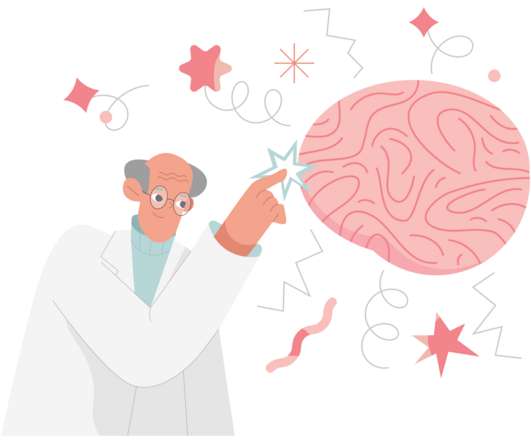
eLearningMind
MARCH 11, 2022
Neurolearning works by integrating learning science and adult learning theory with modern user experience (UX) to create higher engagement with learning material, deepening the understanding of and connection to the learning material.
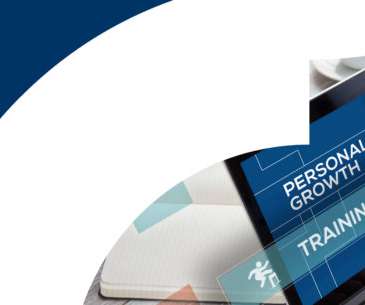
Learning Pool
JULY 17, 2020
When you look into the theoretical underpinnings of learning experience design, it can come as something of a surprise to realize that this new practice area does not lean particularly heavily on traditional learning theory (e.g. Cognitive overload (overuse of media) . Bloom, Gagne, etc.). Desirable difficulties.
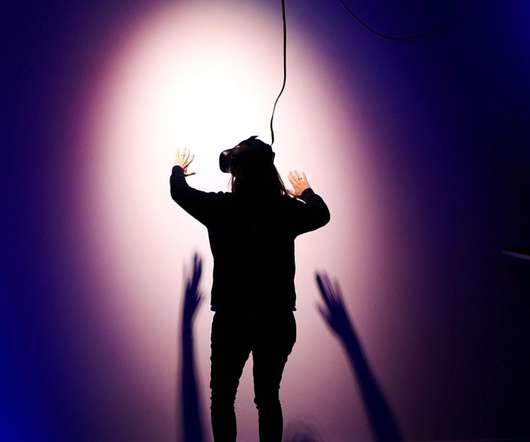
STRIVR
JANUARY 20, 2023
What happens in the brain to master a skill is a complex learning process that involves three distinct stages of motor learning. The brain does this because of past experience, enabling it to act on known patterns and prior information to make split-second decisions. We take it for granted, but neuroscience doesn’t.

Integrated Learnings
AUGUST 6, 2013
If you haven’t encountered it lately, it’s possible you’ve forgotten about the recency theory of learning. Cognitive theorists believe that as new information enters the working memory, earlier information is pushed out. Recency is the tendency to be more likely to remember information from the end of a sequence.

Learning with e's
SEPTEMBER 26, 2014
This is number 32 in my series on learning theories. Psychologists and cognitive scientists have offered a number of useful theories that aid our understanding of learning. In this series I''m providing a brief overview of each theory, and how each can be applied in education. Reference Paivio, A.

Origin Learning
SEPTEMBER 12, 2018
Understanding Social Learning Theory. Social learning theory as we understand it today primarily evolved from the work of Albert Bandura in the 1960s. His definition of social learning was – “People learn from one another, via observation, imitation, and modeling.”

The Learning Circuits
JULY 1, 2010
There's been a lot of discussion around cognitive theory and "how the brain learns." But even with all of that discussion there's a question of whether people are really making changes to the design of their online learning. So, it should look like: Tony Karrer - e-Learning 2.0
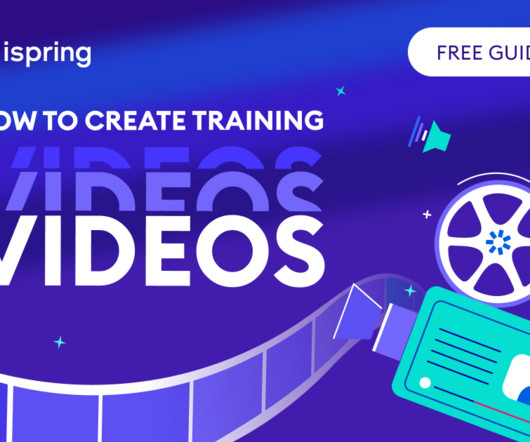
Mike Taylor
DECEMBER 1, 2023
In this one, Connie Malamed explores the effectiveness of animations in learning compared to static graphics. Animations can be effective for visualizing fast or slow processes, yet they don’t always enhance learning due to the cognitive effort required. So, selective use of animations is the key for optimal learning.
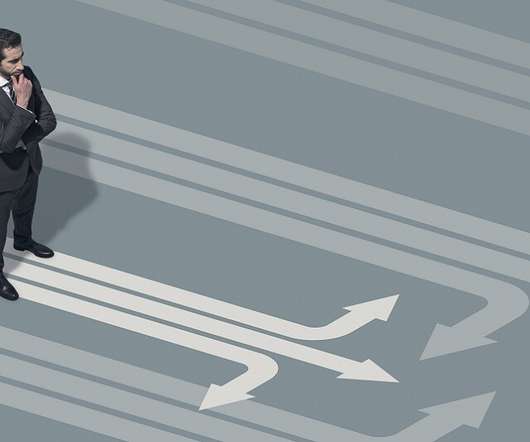
Learningtogo
DECEMBER 13, 2022
The good news is that we’re gaining an influx of talent with a passion for helping people learn, a sound background in learning theory, and a willingness to learn new skills. Malcolm Knowles is recognized as coining the term andragogy to refer to adult learning, while using pedagogy to refer to the education of children.
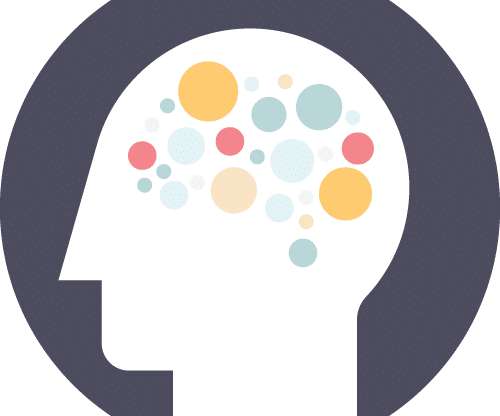
eLearningMind
NOVEMBER 10, 2022
Instead, Neurolearning is a combination of learning theory and neuroscience; a complicated study of how the brain (and the nervous system) works and reacts to stimuli and situations. For our purposes, Neurolearning helps us understand the way individuals learn and how to turn material into memories for later retention.

Zipboard
AUGUST 1, 2018
What learning theory would serve the project’s needs best? Instructional Design Strategy - Free ebook for download - zipBoard What Learning Theory Are You Using? As laid out by Wikipedia, learning theories are “Conceptual frameworks describing how knowledge is absorbed, processed, and retained during learning.”
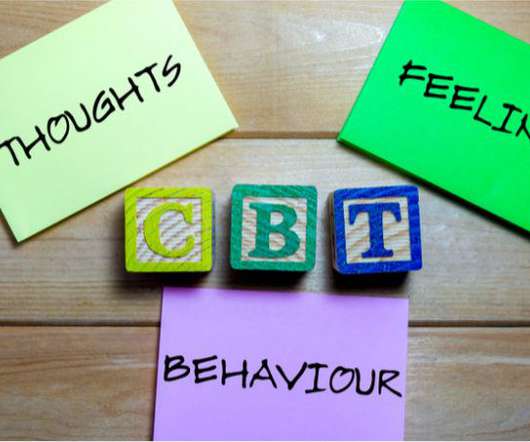
eLearning Industry
OCTOBER 31, 2020
We falsely rationalize that an event (A) is responsible for how we feel or for the consequences (C). We aren't even aware that we have a rational belief (RB) or irrational belief (IRB) in between. In our ignorant minds, the model is simpler, it is the AC model. This post was first published on eLearning Industry.

Learning with e's
AUGUST 31, 2014
This is number 27 in my series on learning theories. I''m working through the alphabet of psychologists and theorists, providing a brief overview of each theory, and how it can be applied in education. In this post, I will examine Jack Merizow''s Transformative Learning theory. Argyris Double Loop Learning 3.
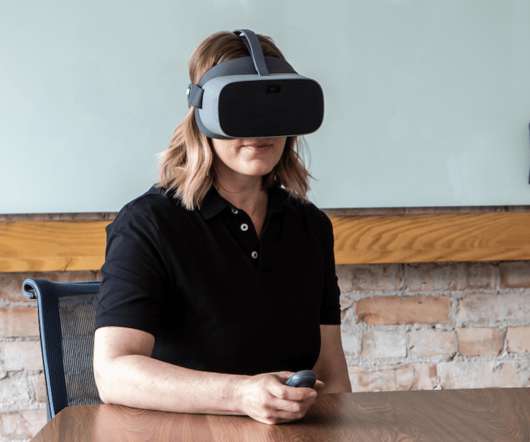
STRIVR
DECEMBER 20, 2019
Even with the significant changes to how our world works, Immersive Learning remains a cornerstone of corporate learning today and a foundation for where things are headed. Founded in behavioral and cognitive science, Immersive Learning provides a memorable tool that accelerates employees’ proficiency in their roles.

eLearningMind
DECEMBER 19, 2022
This journey elicits an Angel’s Cocktail of chemicals in your learner’s brains—dopamine, oxytocin, and endorphins—making the learning more meaningful and engaging. Storytelling is so effective because it “tricks” the brain into absorbing new information by decreasing its cognitive load and increasing retention.

Learning with e's
DECEMBER 9, 2016
This is number 34 in my learning theories series. Psychologists and cognitive scientists have offered a number of useful theories that aid our understanding of learning. In this series I have been providing a brief overview of each theory, and how each can be applied in education.

Ed App
JANUARY 7, 2022
Learning is not easy–whether memorizing an alphabet, analyzing the theory of integrals, or creating a dress pattern, most of us need support. The theory behind instructional scaffolding. The theory of instructional scaffolding has been developed by cognitive psychologist Jerome Bruner in the 1950s (Ninio, Bruner, 1978).

Zipboard
AUGUST 1, 2018
What learning theory would serve the project’s needs best? What Learning Theory Are You Using? As laid out by Wikipedia, learning theories are “Conceptual frameworks describing how knowledge is absorbed, processed, and retained during learning.” What Instructional Design model is to be used?

Learning with e's
JUNE 26, 2014
This is number 20 in my series on learning theories. I''m working through the alphabet of psychologists and theorists, providing a brief overview of each theory, and how it can be applied in education. In this post, we will explore the Gestalt theory of Kurt Koffka. Anderson ACT-R Cognitive Architecture 2.

TalentLMS
DECEMBER 30, 2014
Motivation and behavior theories have been pointing instruction designers and eLearning developers in this direction too. Serious games or serious eLearning solutions take eLearning courses to a higher level of cognitive resonance through emotionally cognizant settings naturally found in games. A trivial factor: human emotions.

Ed App
DECEMBER 8, 2020
It also means that retention rates are improved and learners and because of the cognitive theory behind microlearning, the content learned has a better chance of being stored in long-term memory. Another reason why the introduction of microlearning has grown at higher rates is because of its learning results.

Learningtogo
DECEMBER 29, 2017
Let’s drop all this neuroscience and learning theory stuff; it sounds like too fluffy.”. You are a learning professional. You’ve worked hard to understand how people learn and you keep up on best practices. If that means you’ll get into the theory of learning occasionally, so be it. Neuroscience. Technology.

Integrated Learnings
MAY 3, 2010
I recently read an article called "The Write Brain: How to Educate and Entertain with Learner-Centered Writing" by Kathleen M. Here's how she addresses those opening questions: By blending fictional and technical writing techniques with learning theory, we can craft written materials that both educate and entertain.

Ed App
FEBRUARY 5, 2020
Brain Boost. As an extension of spaced repetition (spaced practice), Brain Boost works to reinforce knowledge already exposed to learners in scientifically calculated increments. These elements are all essential for effective collaborative learning, thus contributing to overall organisational success.

Clark Quinn
APRIL 17, 2010
It’s in the nature of our cognitive architecture to have some randomness. And it’s beneath us to be trained to do something repetitive, to do something that doesn’t respect and take advantage of the great capacity of our brains. Instead, we should be doing pattern-matching and decision-making.

Learning with e's
JUNE 4, 2014
A 3D Printed version of the Penrose Triangle This is number 14 in my series on learning theories. I''m working through the alphabet of psychologists, providing a brief overview of each theory, and how it can be applied in education. The theory There are essentially two main explanations of visual perception.

KnowledgeOne
APRIL 14, 2021
According to the self-efficacy theory of the eminent Canadian psychologist Albert Bandura, pioneer of the social-cognitivist movement, if you have little confidence in your abilities, your chances of achieving your goals are slim. Bandura’s theory is used in psychotherapy and many other fields, including education.

Clive on Learning
NOVEMBER 29, 2007
Chris Brannigan of Caspian Learning alerted me to Cognitive Fitness , an article by Roderick Gilkey and Clint Kilts in the Harvard Business Review, which you can download online for US$6.50. The byline to the article gives you the gist: "New research in neuroscience shows you how to stay sharp by exercising your brain."

Learnnovators
DECEMBER 16, 2015
That doesn’t mean that my learning from them is more compared to someone who prefers audio. To see our brains as more flexible and open than our preferences (and biases) would suggest. For learning professionals it presents even more opportunities. So where’s the ‘power’ behind the secret? Try auditory.
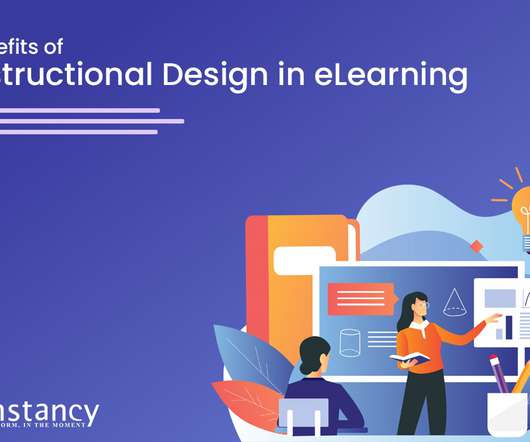
Instancy
APRIL 14, 2021
Ideas from adult learning theories when applied help to answer these questions. Not only this, but adult learning theories also help to understand the characteristics of the adult learners and design the course accordingly. . Is it worth investing my time and effort?
Expert insights. Personalized for you.
Are you sure you want to cancel your subscriptions?


Let's personalize your content